Birchwood Discovery Center serves 23 students in grades Prekindergarten-6.
The percentage of students achieving proficiency in math was <50% (which was higher than the Wisconsin state average of 49%). The percentage of students achieving proficiency in reading/language arts was <50% (which was higher than the Wisconsin state average of 36%).
The student:teacher ratio of 12:1 was lower than the Wisconsin state level of 13:1.
Minority enrollment was 4% of the student body (majority Black), which was lower than the Wisconsin state average of 33% (majority Hispanic).
School Overview
Grades Offered
Grades Prekindergarten-6
Total Students
23 students
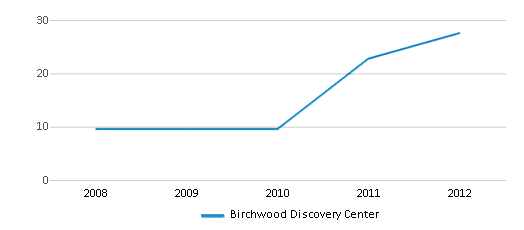
Total Classroom Teachers
2 teachers
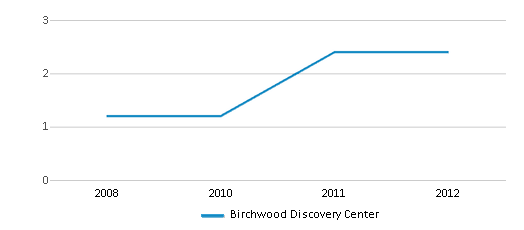
Students by Grade
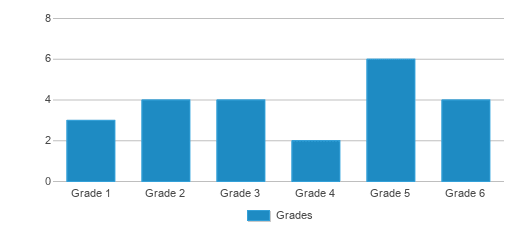
School Rankings
Math Test Scores (% Proficient)
(11-12)<50%
49%
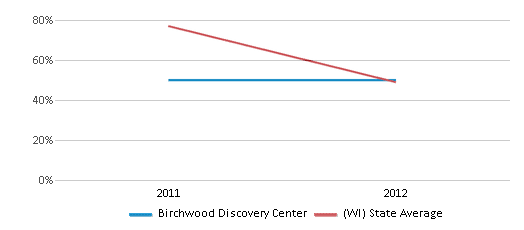
Reading/Language Arts Test Scores (% Proficient)
(11-12)<50%
36%
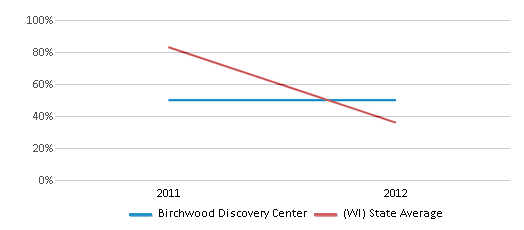
Student : Teacher Ratio
12:1
13:1
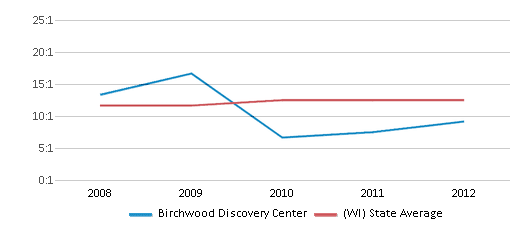
American Indian
n/a
1%
Asian
n/a
4%
Hispanic
n/a
14%
Black
4%
9%
White
96%
67%
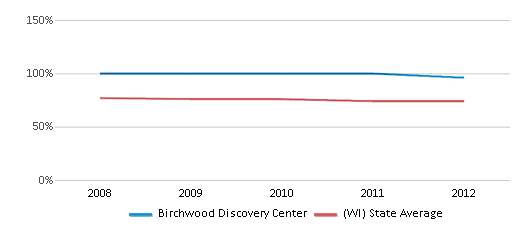
Hawaiian
n/a
n/a
Two or more races
n/a
5%
All Ethnic Groups
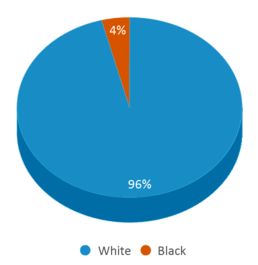
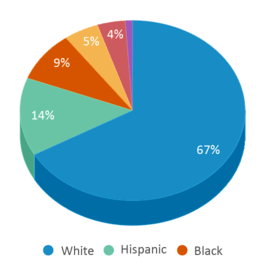
Eligible for Free Lunch
57%
37%
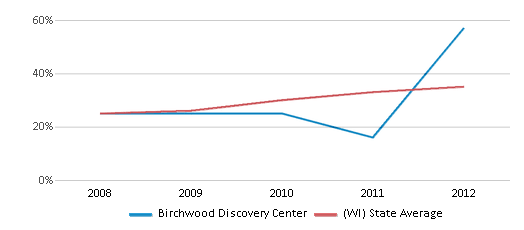
Eligible for Reduced Lunch
4%
4%
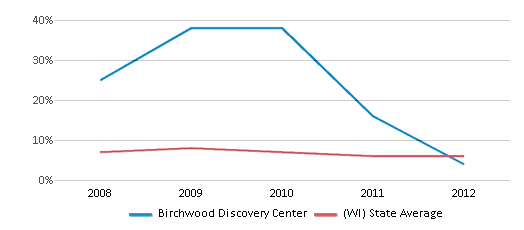
School Statewide Testing
School District Name
Source: National Center for Education Statistics (NCES), WI Dept. of Education
School Notes
- * Small class sizes * Not a "one sized fits all" approach * Students learn independence and how to be accountable for themselves and their work * Encourages creativity and innovation * Exposure to modern technology like PowerPoint, Smartboards and educational websites * Acceptance that each student learns differently so they are taught differently * Teachers are guiding kids as they steer through their own education instead of telling them everything * "Project Based Learning" (PBL) focuses on each child's individual strengths/weaknesses and tailors education for each individual, allowing for much student ownership in the actual learning process. * PBL has shown the students have a deeper understanding of materials and promotes higher level thinking skills * PBL uses students natural interests to gain a complete education
Frequently Asked Questions
What percent of students have achieved state testing proficiency in math and reading?
<50% of students have achieved math proficiency (compared to the 49% WI state average), while <50% of students have achieved reading proficiency (compared to the 36% WI state average).
How many students attend Birchwood Discovery Center?
23 students attend Birchwood Discovery Center.
What is the racial composition of the student body?
96% of Birchwood Discovery Center students are White, and 4% of students are Black.
What is the student:teacher ratio of Birchwood Discovery Center?
Birchwood Discovery Center has a student ration of 12:1, which is lower than the Wisconsin state average of 13:1.
What grades does Birchwood Discovery Center offer ?
Birchwood Discovery Center offers enrollment in grades Prekindergarten-6
What school district is Birchwood Discovery Center part of?
Birchwood Discovery Center is part of Birchwood School District.
Recent Articles

Sexual Harassment at Age 6: The Tale of a First Grade Suspension
A six-year old in Aurora, Colorado, was suspended after singing an LMFAO song to a little girl in his class and reportedly “shaking his booty.” We look at the case and the sexual harassment problem in public schools today.

How Scaffolding Could Change the Way Your Child Learns
This article explores the concept of instructional scaffolding, a teaching method that enhances learning by breaking down complex tasks into manageable parts. It highlights how scaffolding supports students in developing critical thinking skills and becoming more independent learners. The article discusses the benefits of scaffolding, including improved engagement and reduced anxiety, and provides strategies for its implementation across various educational levels.

February 05, 2025
Understanding the U.S. Department of Education: Structure, Impact, and EvolutionWe explore how the Department of Education shapes American education, from its cabinet-level leadership to its impact on millions of students, written for general audiences seeking clarity on this vital institution.





